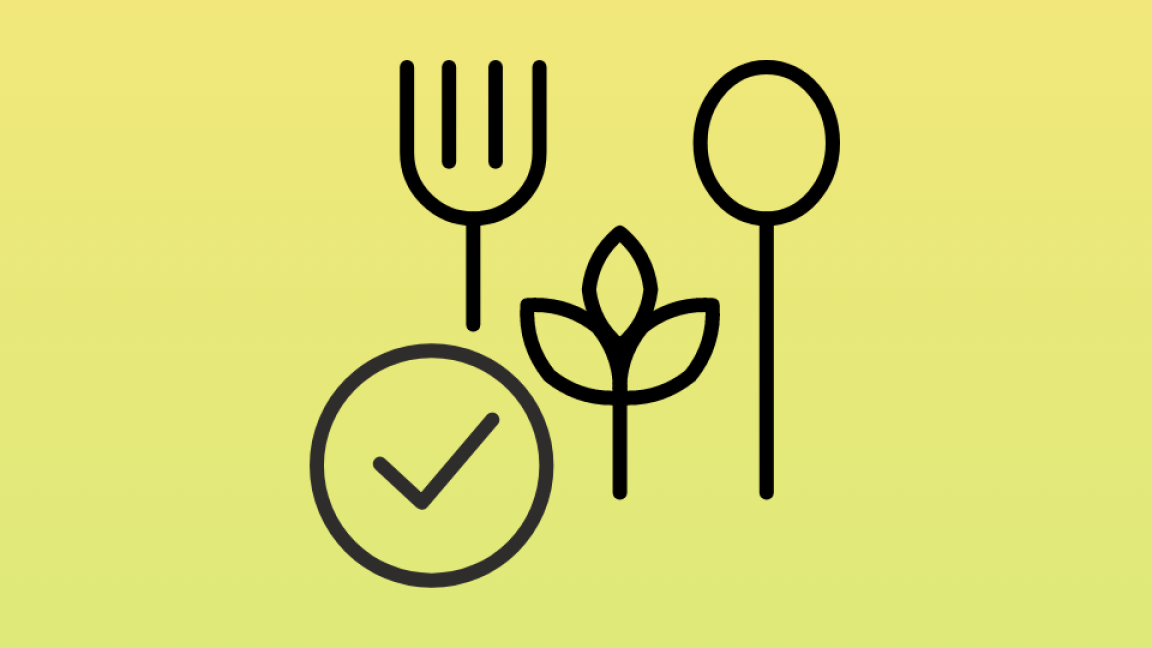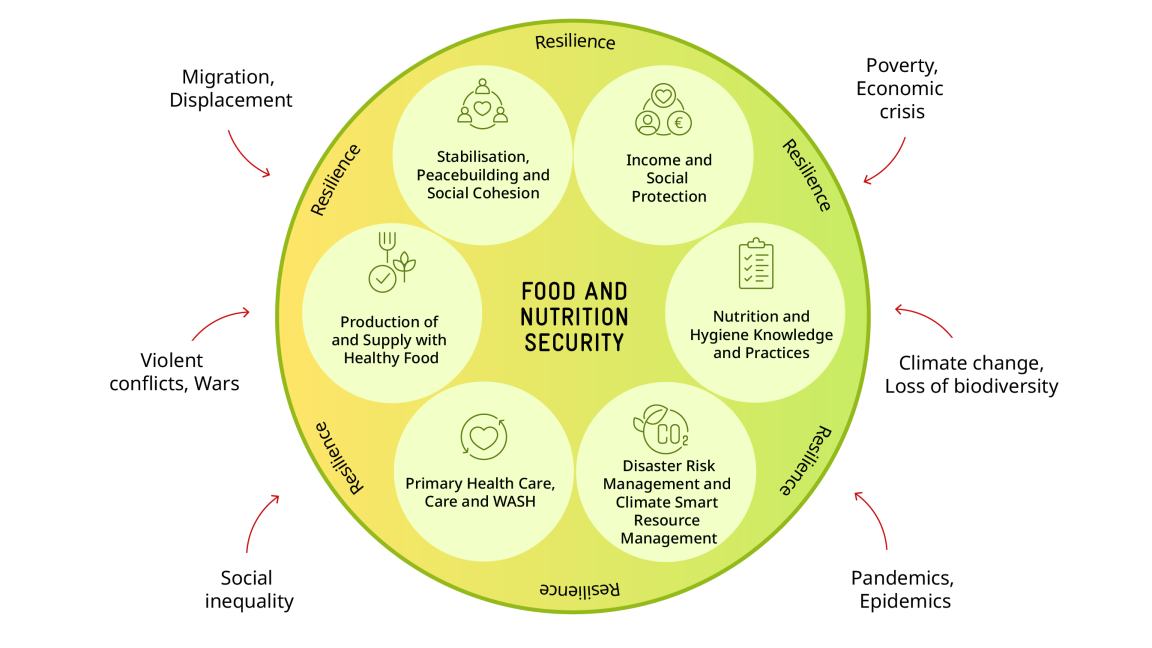After decades of progress, the number of people with hunger is now increasing again. In 2023, an estimated 733 million people worldwide did not have enough to eat – around 9 per cent of the world population.

Food and nutrition security
Achieving healthy and sustainable food for all is one of the greatest global challenges. We work worldwide to make agriculture and food and systems crisis-resistant, fair and future-proof.
People are consuming insufficient vitamins and minerals.
of adults worldwide are overweight.
people are unable to afford healthy food.
The main reasons for hunger, food and nutrition insecurity include:
- Conflicts
- Economic crises
- Inequality and food prices
- Climate-related extreme weather events
In addition, more than one third of the world’s population is unable to afford healthy food. They cover their calorie needs primarily through staple crops such as wheat, maize and rice. As a result, 2 billion people do not consume enough micronutrients to meet their requirements for vitamins and minerals. At the same time, shifting dietary patterns have led to a global rise in obesity, including in countries still severely affected by malnutrition. Worldwide, around 43 per cent of adults are overweight.
Our vision for global food and nutrition security
It is possible to provide the future population of 10 billion people in 2050 with a healthy diet while respecting planetary boundaries. This will require a fundamental transformation of our agricultural and food systems.
The following changes are called for:
- Less food loss and waste
- More sustainable food production systems
- Changes in our eating habits worldwide
How GIZ supports food and nutrition security

GIZ uses a cross-sectoral, integrated approach. We work along the four dimensions of food and nutrition security: